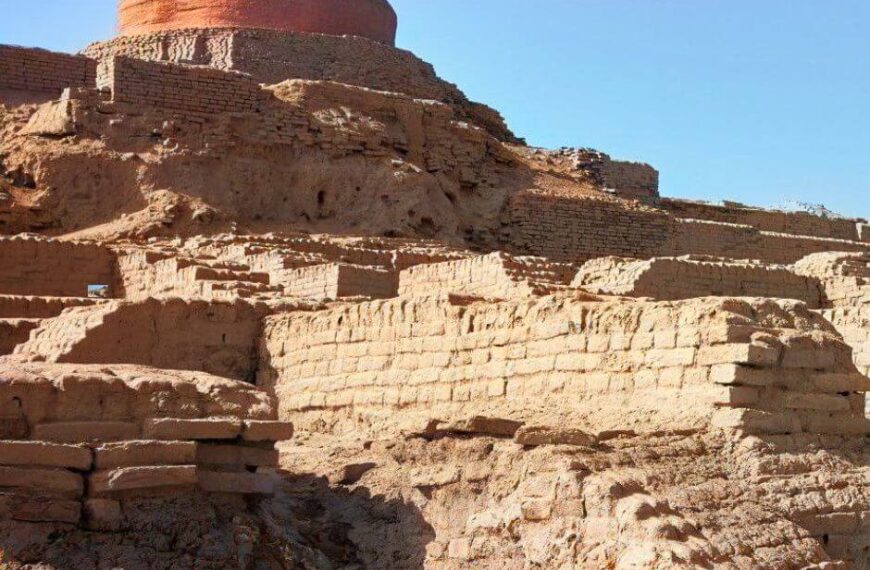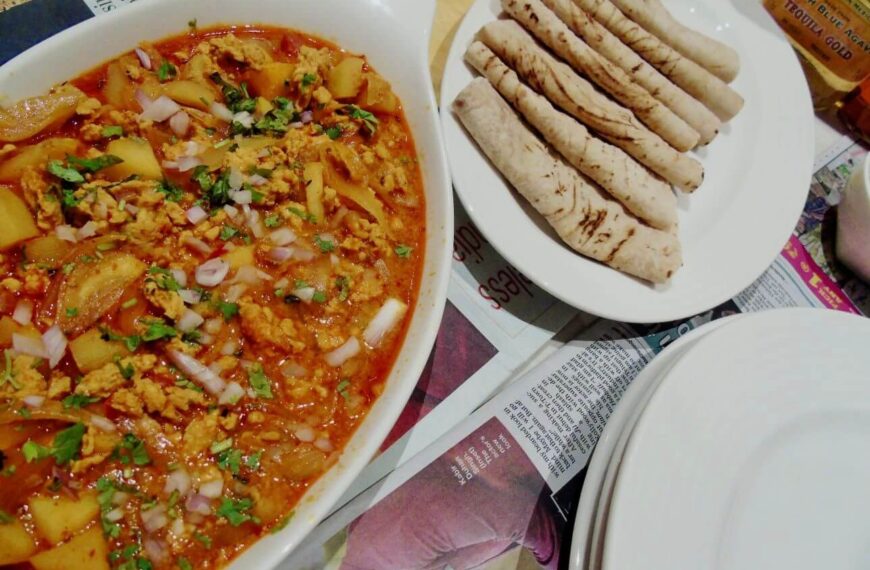From the deserts we moved to the eastern part of the vast Indian land. Each state has such diversity that one never ceases to be goggle eyed at the alluring span of culture. The clothes, the food, the climate and the vegetation, change every few miles. This one was a field posting in the tea gardens in Bagrakote, in West Bengal. The unit was stationed in temporary makeshift accommodation made out of locally available material. We lived in a Basha (tarpaulin). It is the British military slang for a shelter or sleeping area. The roof was made with tin sheets and the walls were made of bamboo pillars. Well to put it mildly, it was nothing but a glorified thatch hut. Lily takes us through lush green vegetation, a land of leopards, elephants, leeches, snakes and deadly mosquitoes. Here’s an interesting account, in the weekly column, exclusively in Different Truths.
Postings are the cinnamon and cloves of army life, spicing up and colouring our days with fresh flavours. They teach our children resilience and make them amiable and sociable. Often pulled out in midsession to join new schools in strange towns, with absolutely different language and traditions, the kids bounce back to fight for a place in class, again and again, despite hostile stares and strange classrooms. I feel a fierce maternal pride whenever I tell my friends that when my daughter turned sixteen, she had already changed eighteen schools!
From the deserts we moved to the eastern part of the vast Indian land. Each state has such diversity that I never cease to be goggle eyed at the alluring span of culture. The clothes, the food, the climate and the vegetation, change every few miles. This one was a field posting in the tea gardens in Bagrakote, in West Bengal. The unit was stationed in temporary makeshift accommodation made out of locally available material. We lived in a Basha (tarpaulin). It is the British military slang for a shelter or sleeping area. The roof was made with tin sheets and the walls were made of bamboo pillars. Well if I put it mildly, it was nothing but a glorified thatch hut. One of the makeshift washrooms was converted into a kitchen by pulling down the lid of the WC and covering it with a wooden table. On that, I set up my spice containers and hey presto, the food was rolling.
The tea gardens were spread all around us and we had many sightings of the magnificent leopards prowling through the pathways artfully camouflaged in the thick tea bushes. It rained incessantly in the East making the vegetation lush and dense. I had used the bamboo matting as floor covering and also lined the walls of our Basha with rolls of bamboo matting. My sitting room looked like a village hut with all the thatch and bamboo. I loved it. I had converted hollowed out wide bamboos into flower pots for my unending trailing creepers. I hung them with ropes all around the long veranda. I have never seen healthier or happier plants than in these areas. This green trellis reminding me of Ravana’s Ashok Vatika (garden) and the image of captive Sita beneath a huge tree, amidst lush green foliage. These greeted me as I stepped out of my two-room abode.
Huge jackfruit grew in bunches on thick leafed trees right outside my door. It could be cooked into a curry when raw or eaten as fruit when ripe; fragrant, fleshy and sweetly juicy.
Tea cultivation had started off in North Bengal around 150 years ago, in the Doars region. It is estimated that about 2,500,000 people are dependent on the tea industry. About 52 per cent of the permanent 3.25 lakh work force is female. We made great friends for life with the tea planting fraternity and were often invited to the Doars Club. An officer from our regiment had quit the army and taken employment with a neighbouring tea estate. This gave us a taste of the Burra sahib lifestyle of this elitist band of merry men. The mansions were majestic colonial bungalows in acres of land. They lorded over a retinue of tribal staff in the homestead along with the jing-bang and paraphernalia of the tea gardens. The children were packed off to boarding schools in Darjeeling, Kalimpong or Kolkata. One could get used to this high life if one didn’t mind the solitary splendour amidst aching loneliness.
One of the most memorable sights in my mind is that of a trampling and marauding herd of elephants led by a gigantic tusker on a food stealing rampage. Like one has fire drills in case of emergency, we had an Elephant drill where we practised shooing off these huge mammals. Massive fire torches called mashaals were lit and drums beaten with thunderous rolls to frighten away these strange dacoits. During our tenure in Bagrakote, I discovered that the elephants invaded the ration store to steal bags of wheat flour. What a terrifying sight it was to my city bred eyes.
 Darkness loomed as early as 4PM in this far eastern part of India. Dawn arrived equally early at 4.30AM. The kids battling leeches in their shoes and socks or staring agape at brilliant hued snakes on the way back from school were taught to make the most of the small window of afternoon. They scampered off to play in the gun park amidst the huge guns and rocket launchers. Since there was hardly any place to take a long walk, the ladies would gang up and go for a brisk walk right on the national highway which ran bang opposite our location. It was the road that connected the rest of India to Assam and beyond. We were later advised to walk with the men as a deterrent to the unsolicited cat calls from the truckers that plied on this road. We would hear the drivers wolf whistle as they zoomed past us on the highway. Lewd remarks would also fly around.
Darkness loomed as early as 4PM in this far eastern part of India. Dawn arrived equally early at 4.30AM. The kids battling leeches in their shoes and socks or staring agape at brilliant hued snakes on the way back from school were taught to make the most of the small window of afternoon. They scampered off to play in the gun park amidst the huge guns and rocket launchers. Since there was hardly any place to take a long walk, the ladies would gang up and go for a brisk walk right on the national highway which ran bang opposite our location. It was the road that connected the rest of India to Assam and beyond. We were later advised to walk with the men as a deterrent to the unsolicited cat calls from the truckers that plied on this road. We would hear the drivers wolf whistle as they zoomed past us on the highway. Lewd remarks would also fly around.
I ate some unusual vegetables here, primarily greens. Leafy vegetables of all varieties made an appearance on tables. We would go vegetable shopping to a village bazaar called ‘haat’. A pile of assorted vegetable lay on the ground with a tiny lamp lighting up the proceedings. I remember shopping for long spindly snake gourds and small, square squashes, besides the red, russet and green leaves. The locals brewed and drank a country made liquor made with palm fruit called ‘taadi’, probably a kind of toddy.
The queen of the hills Darjeeling, the capital of Sikkim, Gangtok and the exquisite hill kingdom of Bhutan were not too far away. Darjeeling was a scenic hill station with remnants of the Raj. The Nepal border was the haunt of army wives scrounging for imported Chinese crockery and Belgian crystal. Foreign goods were coveted and each army home had identical ornamental statuettes and dinner sets. It was fun to whizz across to Nepal or to the Bhutanese town of Phuentsholing.
We had to shift to another place, about 150kms further east. Called Hasimara Cantonment, it had enormous, 150 feet high, sky scraping teak trees, which though were excellent cover from air attacks, would let down no sunshine at all, making the soil perpetually damp. As a result of it this town came on the map of the World Health Organisation for Malaria eradication. A special strain of mosquito spreading malaria in epidemic proportions was found here. We all had to have a daily dose of quinine tablets. They flew around below three feet looking to suck blood and spread disease, therefore, young kids, who were easy victims due to their height were tucked into mosquito nets during the mosquito breeding time, which was around 4PM or so. The trees were good quality teak and each of them was worth its weight in gold. Well they were still standing haughtily when I last saw them.
Cable television had not made an appearance yet in India. The only source of entertainment in our Basha was the Doordarshan national channel. If we climbed up a ladder and changed the direction of the antenna we could hook on to Bangladesh television. My knowledge of Bengali words increased by leaps and bounds. VCRs and VCDs were just making an appearance. We used to go to the closest market in New Mall to rent VCDs of latest films from a hole in a wall kind of shop. As we picked up the treasure trove to take home for viewing, we asked the shopkeeper as to how the film was. He replied, “mota- moti.” In Hindi or Punjabi, which is our mother tongue, it translates into “fat man, fat woman”. My husband, a burly Sardar was incensed. He stamped out of the shop muttering, “How dare he insult us. So what if we are fat? Why did he have to say so?” To our rib tickling amusement, we discovered much later that in Bengali these words meant “OK or so-so”. Our stupidity cost us a fine film. So much for learning the local language!
©Lily Swarn
Pix from Net.










 By
By

 By
By